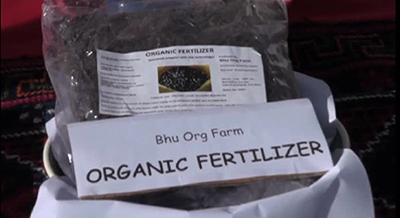 Harsh climate, rough terrain, poor soils, and short growing seasons often lead to low agricultural productivity and food deficits in 8 Hindu-Kush Himalayan countries. Looking at the need to understand and promote organic agriculture and develop a market for organic products, a symposium on organic agriculture was held in Paro for two days.
Harsh climate, rough terrain, poor soils, and short growing seasons often lead to low agricultural productivity and food deficits in 8 Hindu-Kush Himalayan countries. Looking at the need to understand and promote organic agriculture and develop a market for organic products, a symposium on organic agriculture was held in Paro for two days.
Climate change along with other factors such as globalization, market-oriented economic development, and environmental and socio-economic change have impacted natural resources, ecosystems and livelihood of people around the world. Organic agriculture is considered one of the best ways to enhance livelihood and adapt to climate change.
The two-day symposium, therefore, looked into high yield crops, exploring innovations to improve soil fertility and conserving water resources in order to promote the adoption of safe food farming.
“While we have organic farming in Bhutan, the scale and the volume of production is not enough if we want to trade. So we need to look into ways of commercializing the organic production to meet the needs of the market,” said Kezang Tshomo, the Program Officer with the National Organic Flagship Programme.
Though there are demands for organic products in both international and local markets, due to inadequate awareness and marketing mechanisms for the promotion of organic products organic agriculture is often challenged. Organic agriculture is confronted with a lack of technical and financial services and quality input.
 “People are more used to the system that has been going on for a while now. They believe that using chemical fertilizers increases the yield. But in the long run, what we are looking into is not only the benefit of increased yield but also the health benefit. So, we are concentrating on manufacturing organic fertilizer, vermin compost, and chicken manure. These are enriched compost which people are not aware of,” said Kamal Praden, who runs Bhu Org Farm in Gelegphu.
“People are more used to the system that has been going on for a while now. They believe that using chemical fertilizers increases the yield. But in the long run, what we are looking into is not only the benefit of increased yield but also the health benefit. So, we are concentrating on manufacturing organic fertilizer, vermin compost, and chicken manure. These are enriched compost which people are not aware of,” said Kamal Praden, who runs Bhu Org Farm in Gelegphu.
The symposium is also expected to complement the National Organic Flagship Programme which is included in the 12th Five Year Plan.
“ICIMOD provides expertise in soft areas like information management, networking and resource sharing. The Resilient Mountain Solutions project has agreed to complement the flagship programme,” said Kezang Tshomo.
The symposium is part of the Resilient Mountain Solutions. The Resilient Mountain Solutions is an approach that combines economic, social, and environmental dimensions of sustainable development with climate change adaptation, resilience and preparedness for future risks towards an integrated approach to resilient mountain development.
Today there are 24 farmer’s group or cooperative, 3 organic retailers and one exporter involved in organic production and marketing in the country.
Sangay Chezom





